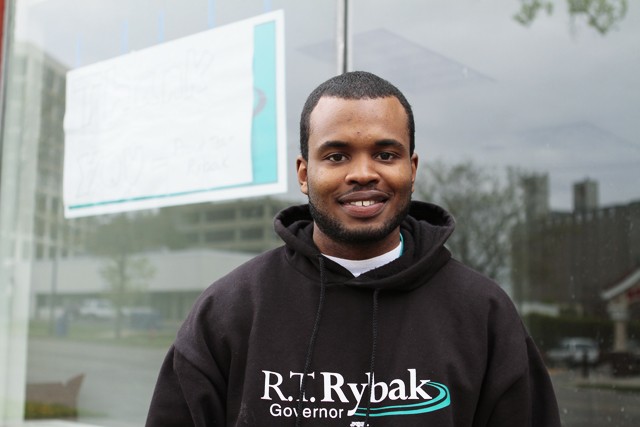After constant recruitment, numerous district conventions and countless hours spent in the campaign office, a candidate getting a partyâÄôs endorsement stamps a successful campaign. For candidates who did not receive the endorsement, deciding whether to drop out of the race not only affects their future in politics but terminates the jobs of those who have provided the backbone for their campaigns. âÄúItâÄôs heartbreaking,âÄù Steve Hogan, regional field director for former gubernatorial candidate and Minneapolis Mayor R.T. Rybak, said. âÄúItâÄôs tough for not just myself but for everyone, for my boss who has two kids under 2. ItâÄôs our job, our health care.âÄù Hogan, who has been with RybakâÄôs campaign since 2009, spent seven days each week working on the campaign, some days spending more than 12 hours in the office. âÄúIt feels good to have a few days off and relax, but at the same time, youâÄôve also invested so much time and energy to do this,âÄù Hogan said. Phil Troy, University of Minnesota political science junior, was an intern for Republican candidate Marty Seifert in the fall and continued to volunteer for his campaign throughout the spring. On Saturday, when Seifert dropped from the race during the Republican Convention, Troy said he was shocked but not as emotional as he expected to be. âÄúI expected the voting to go on longer than it did, but Marty said, âÄòIâÄôm most likely going to lose, and IâÄôm not doing anyone favors by dragging it out,âÄô âÄù Troy said. âÄúI support his decision, and those two [Seifert and Tom Emmer, the endorsed candidate] standing on stage together speaks volumes about how unified we are going forward with this.âÄù During campaign season, full-time employees work anywhere from 40 to 80 hours each week. Because of this, Hogan said, most full-time employees are unable to work another job and, because of their passion for the candidate, donâÄôt think about their campaign terminating. âÄúWe were out on the convention floor, and it had got to the point where just R.T. and Kelliher were left and we were really working the crowd,âÄù Hogan said. âÄúWe got a call saying, âÄòCome back to the will room,âÄô and I thought we were going to come back out with a new strategy, but once we saw R.T. come in and start giving people hugs, it really hit me.âÄù Hogan, 24, is currently unemployed and undecided on what to do going forward. âÄúIâÄôm considering a couple different campaigns and also some things outside of politics,âÄù Hogan said. âÄúGetting into law school is also a possibility.âÄù Tiffany Orth is currently the campaign deputy finance director for DFL candidate Matt Entenza, who did not participate in the partyâÄôs endorsement convention. âÄúItâÄôs hard to say if I could find another job, but I do think I would have the persistence and drive to find something,âÄù Orth said. âÄúI would probably be applying to graduate school.âÄù In addition to looking for a paid job, staff of former candidates also have to decide if they will continue to support one of the remaining candidates. Troy said he will support Emmer as a volunteer for his campaign through the summer and into the fall. Drew Post, agricultural and food business management junior, who was also part of SeifertâÄôs campaign, plans to join EmmerâÄôs effort as well. âÄúWeâÄôre going to be behind the candidate no matter who it is,âÄù Post said. âÄúI fully expect those who were working for Seifert or anyone else for that matter to work for Emmer. ItâÄôs about getting elected.âÄù Those who were part of RybakâÄôs campaign are also continuing their efforts to ensure a DemocratâÄôs win. âÄúAs a campaign, we still realize that thereâÄôs work to be done,âÄù Hogan said. âÄúThereâÄôs still areas where Democrats can win, and we want to make sure that still happens. WeâÄôre still working together to make a difference in Minnesota.âÄù

Image by Mark Vancleave
Steven Hogan stands in front of the now deserted Rybak gubernatorial campaign office Monday.
Local campaign staff move on after endorsements
When campaigns end, staff find different ways to move forward.
by Andrea Schug
Published May 4, 2010
0
More to Discover







